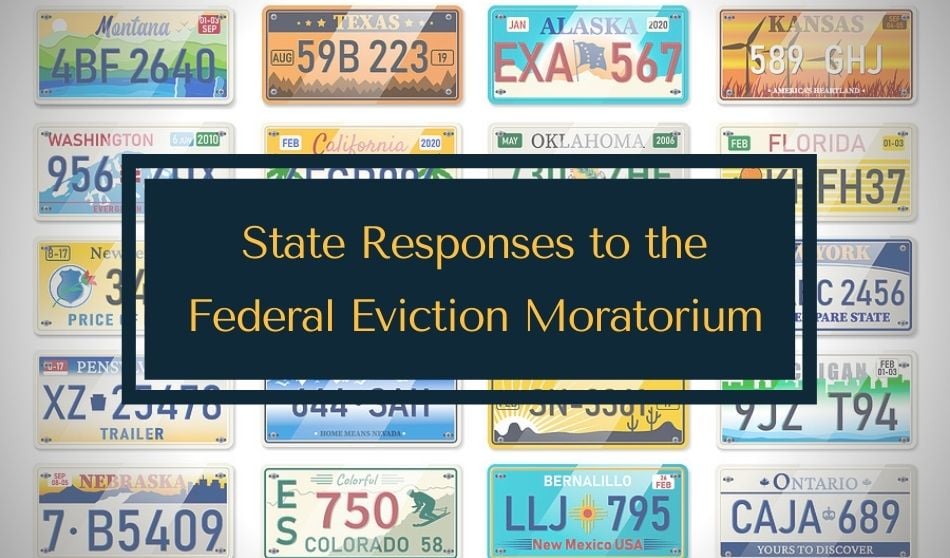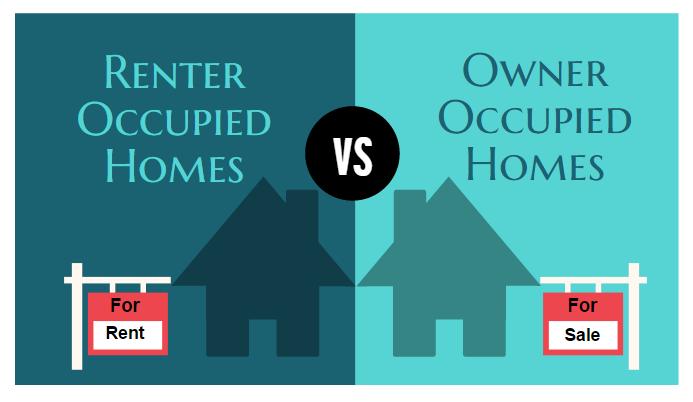
States are reacting to the federal eviction moratorium in varied ways which directly impact the day-to-day operation of landlords nationwide.
There is a wide range of state responses to the eviction moratorium, from silence to opposition. Many states only abide by CDC regulations without additional orders. Texas has pushed back to demand complete state autonomy and locations in Georgia continue evictions despite the ban. Conversely, several states, including California, have implemented more stringent regulations.
California Responds by Increasing Protections for Renters
Approved by Governor Newsom in January, Senate Bill 91 (SB91) took effect February 1 and expands protections for renters, including constraints on landlords for rent and debt collections and tenant selection. The highlights of the bill are:
- If neither are extended, although the Federal moratorium expires March 31, the California moratorium is extended through June 30, 2021.
- A landlord may not sell or assign any rental debt accrued from March 1, 2020 through June 30, 2021 or until after the moratorium expires. However, a landlord may never sell or assign that debt if the tenant meets the eligibility conditions of the Rental Assistance Program at or under 80% of the area’s median income.
- Landlords may not increase fees, charge or attempt to collect late fees for debt covered by the COVID tenant declaration.
- Not only are qualified tenants currently shielded from eviction for nonpayment but will continue to be protected after the moratorium for the unpaid rent accrued during the moratorium.
- Rent payments received must be applied to the current month unless the tenant agrees in writing to apply the rent to the past due amount.
- Landlords may not use COVID-19 rental debt acquired between March 1, 2020 and June 30, 2021 as criteria to deny a qualified prospective tenant application.
Included in the legislation are provisions that support landlords with financial assistance. For instance, financial assistance of 80 percent of unpaid rent accrued from April 1, 2020 to March 31, 2021 will be provided to landlords who agree to waive 20 percent of a tenant’s unpaid rent
Read More:
Federal Judge in Texas Declares CDC Eviction Ban Unconstitutional
An instance in which a state resisted the federal executive order occurred recently in Texas. J. Campbell Barker, a federal US District Judge, ruled that the federal government overstepped its authority to block rent enforcement.
In the judgment dated February 25, 2021, it was ruled that the federal moratorium on evictions was unconstitutional, but no injunction has yet been issued. The Department of Justice has not commented on whether they intend to appeal.
In the debate between state-level regulations and the federal moratorium is the state’s right to govern with autonomy versus the federal government’s responsibility to the economic and physical health of the country at large.
The Center for Disease Control (CDC) believes it is operating in the best interest of the entire country when they originally issued the CARES Act, an eviction moratorium that banned processing evictions for non-payment of rent due to circumstances related to COVID such as loss or reduced income.
When that lapsed, they issued a follow-up eviction moratorium that emphasized how evictions contribute to the spread of the virus due to the need for cohabitation, communal living such as shelters, and homelessness. The CDC acted under its believed authority to prevent the spread of the virus across state lines (85 Fed. Reg. 55292). In an executive order, President Biden extended the federal protection until March 31, 2021
Read More:
CDC | Temporary Halt in Residential Evictions to Prevent the Further Spread of COVID-19
Texas Tribune | Texas judge rules federal eviction moratorium unconstitutional. Lawyers and advocates disagree on what that means for tenants.
CNBC | Texas judge finds national eviction ban unconstitutional
Judge in Georgia Responds by Allowing Evictions to Proceed
Also in direct opposition and despite the CDC order, a judge in Georgia defies the CDC moratorium and continues to process evictions. Carroll County Judge Alton Johnson represents a minority of judges across the country who do not recognize that the CDC has greater authority than the state. The state Supreme Court in Georgia will not intervene unless an eviction case reaches them on appeal.
Chain Reaction or Status Quo
Even at the city level, eviction bans and repayment criteria are being set. A city may place greater restrictions than a county or state but not less than. Similarly, a county may inhibit some behavior as long as the state mandate is met. But what transpires in the future is up in the air. It’s uncertain if states will follow Californias lead to add restrictions or the examples set by Texas and Georgia which lean toward state autonomy.
Many states are waiting to see if the US Justice Department will address the CDC moratorium by passing a law. In the meantime, it appears some states are lining up on the side of protecting landlords or laying low to see what unfolds when the current federal moratorium expires at the end of the month.






These types of regulations are exactly why I want to sell my rentals and get out of the landlord business. Let someone else deal with the headaches.
I agree. Landlords are expected to pay real estate taxes, insurance, and maintenance to our properties without any compensation. The government is giving TRILLIONS of dollars to every group except landlords. How are we expected to pay our bills without any compensation? Housing groups depict the landlord is evil by trying to evict a tenant for non-payment. Some tenants are using this as an excuse to not pay their rent. Since they do not have to pay rent, they have more money to buy televisions and go to the local bar. The tenant housing advocates do not mention this! These housing advocates should open their home to struggling tenants and work for free!
The moratorium certainly is a headache. I do not like the government trying to run my business and not expecting the people who are enjoying my home for free. I have people working full time, never missed work, not paying the rent. What do you think the ones who are not paying now will do when they owe several thousand dollars. FILE BANKRUPTCY! I am sick of it, I have done this for 41 years. This needs to stop right now!